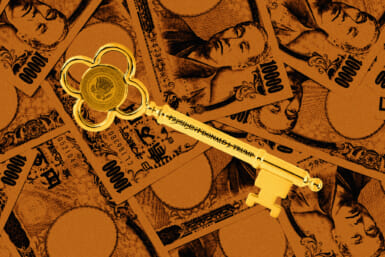Provided by MAGELLAN JAPAN:
THE FINANCIAL PLANNING COMPANY
Tel. 03-3769-5511
Putting your money in bricks and mortar
The idea of owning rental property seems to be gaining popularity as investors tire of the rise and fall of the stock market. Not everyone has what it takes to be a landlord, but those who do may find property rental income to be a good way to build long-term wealth.
Know your Time Horizon
As with any other investment, you should have a good idea of how long you plan to own a rental property before buying it. The longer you plan to own the property, the more you’ll probably need to invest in maintenance and improvements.
You also may face more investment risk with a shorter time horizon. Although your rental will almost certainly appreciate over 20 years, it could easily lose value in the next five, particularly if you’re buying in an overheated market. For many small investors, long-term ownership makes the most sense as you can ride out any swings in the market, and rental income can make a nice supplement to your day job. Invest in enough rental properties, and being a landlord may become your day job.
Get your Finances in Shape
The better your credit, and the less credit card and other consumer debt you have, the better your prospects for getting a decent loan. Lenders usually require a deposit of at least 25-30 percent and a strong financial position when you’re buying rental property. Remember to keep a cash reserve too, for unexpected repairs and vacancies or void periods, as they are known. Setting aside at least one month’s rent for each property is a good start.
Retirement Planning
You also should make sure you can save enough for retirement and other goals before investing in rental property. While rental income can supplement your retirement, most people shouldn’t count on it to replace other investments or allow themselves to be entirely exposed to the whims of the local real estate market. Rents and property values can fall as well as rise, and those who are adequately diversified with investments in stocks, bonds and cash will be better able to endure the bad times as well as the good.
Avoid Overpaying
As one experienced landlord put it: “You make your profit when you buy a property, not when you sell it.” Pay too much, and you’ll never recoup as much as you could have had you driven a better bargain.
Covering your Costs
What’s key is to make sure your rental income will cover your out-of-pocket costs. That includes the mortgage payment on the property, as well as taxes, insurance, maintenance, repairs and a vacancy rate of around five percent. If you can at least break even, you’ll be able to profit from any price appreciation as well as from tax breaks available to rental property.
Summary
Preparation pays off when investing in properties that can build you net worth and provide a steady income stream for your future, and can also diversify your investment portfolio.









